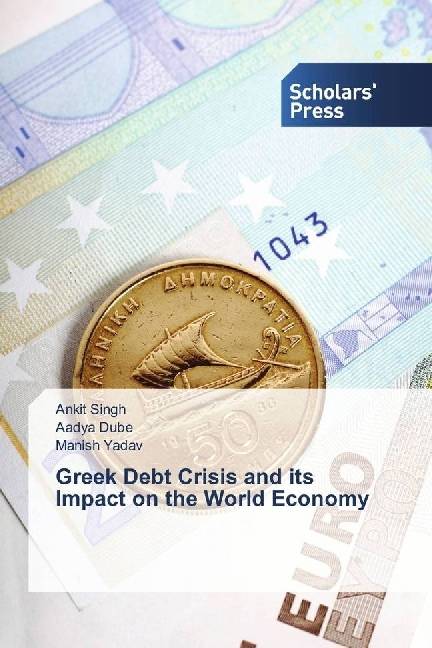
- Afhalen na 1 uur in een winkel met voorraad
- Gratis thuislevering in België vanaf € 30
- Ruim aanbod met 7 miljoen producten
- Afhalen na 1 uur in een winkel met voorraad
- Gratis thuislevering in België vanaf € 30
- Ruim aanbod met 7 miljoen producten
Zoeken
Greek Debt Crisis and its Impact on the World Economy
Ankit Singh, Aadya Dube, Manish Yadav
Paperback | Engels
€ 78,95
+ 157 punten
Omschrijving
The Greek debt crisis is claimed to be the aftermath of the 2008 financial crisis of USA. Greece's economy has been in crisis since 2009. While concerns have focused on the sustainability of the government's debt, the crisis has also resulted in a general collapse of the Greek economy. Greece's debt level has increased from 103% of GDP to over 170% of GDP, its economy has contracted by 25%, unemployment has tripled to 25%, and the Greek banking system has become increasingly unstable. Although other Eurozone governments, the International Monetary Fund (IMF), and the European Central Bank (ECB) have taken a number of policy measures to contain the crisis, Greece continues to face serious economic challenges. The purpose of this book is to comprehensively analyze the situation of the Greek economy and to study its effects on the world. This work would be helpful for academicians, professionals, students and other members of the legal fraternity who want to gain an insight into the Greek debt crisis. This book gives a unique perspective that is a blend of international trade law and global economy.
Specificaties
Betrokkenen
- Auteur(s):
- Uitgeverij:
Inhoud
- Aantal bladzijden:
- 204
- Taal:
- Engels
Eigenschappen
- Productcode (EAN):
- 9783659844249
- Uitvoering:
- Paperback
- Afmetingen:
- 150 mm x 220 mm

Alleen bij Standaard Boekhandel
+ 157 punten op je klantenkaart van Standaard Boekhandel
Beoordelingen
We publiceren alleen reviews die voldoen aan de voorwaarden voor reviews. Bekijk onze voorwaarden voor reviews.











